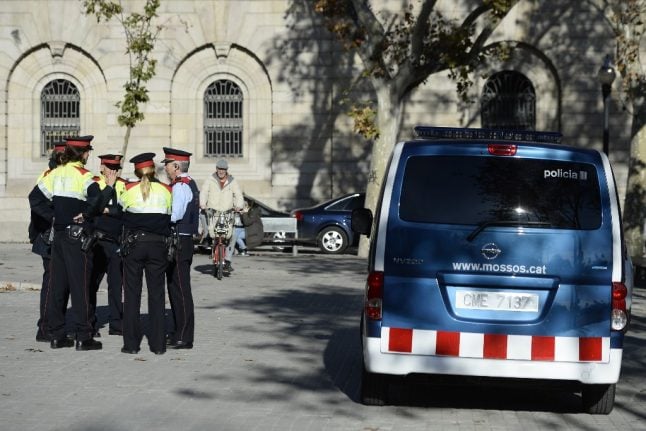The 66,000 inhabitants of the localities of Igualada, Odena, Santa Margarida de Montbui and Vilanova del Cami “cannot leave their urban core” although they can leave their homes, a statement said, citing instructions from Catalonia's governor.
? Trabajamos en el confinamiento en Igualada, Santa Margarida de Montbui, Òdena y Vilanova del Camí a partir de las 21h:
?Quien pueda acreditar q no vive en el municipio podrá salir tras ser identificado
?Quien quiera entrar en la ciudad lo podrá hacer xa quedarse#Coronavirus— Mossos (@mossos) March 12, 2020
In a tweet from the Catalan police force above, they said those who can prove they are not residents in the municipalities will be allowed to leave before but those who want to enter will be forced to stay.
? Remember that from 12 am the population of Igualada, Santa Margarida de Montbui, Òdena and Vilanova del Camí will be confined and nobody will be able to leave during the next days #Coronavirus
— Mossos (@mossos) March 12, 2020
Catalonia's health minister Alba Verges tod reporters that the authorities would be focussing on Igualada, a town of 40,000 inhabitants which is only 70 kilometres ( (40 miles) from the regional capital Barcelona, as the number of cases was growing rapidly.
There are currently 58 cases in the town, 38 more than on Wednesday, he said.
Spain has seen the number of infections spiral since the start of the week, becoming one of the worst-hit countries in Europe.
Madrid has borne the brunt of the crisis, clocking up 1,388 infections and 38 deaths by Thursday morning.
Late on Thursday, Prime Minister Pedro Sanchez gave a televised press conference without any
journalists present, answering questions posed via WhatsApp.
“To beat the virus as quickly as possible, responsibility and social discipline is essential. This requires big changes in our habits,” said Sanchez who will conduct all future meetings by video conference.
Sanchez said the government had agreed on a raft of economic measures including a tax moratorium for affected companies as well as funding for the worst-hit sectors, such as tourism — which accounts for 12 percent of Spain's GDP.
In total, some 4.2 billion euros ($4.7 billion) would be unblocked, including nearly 3.0 billion for the regional health authorities, he said, with the tax deferrals and delayed payments amounting to some 14 billion euros.
His remarks came after yet another dire session for Spain's benchmark Ibex-35 which plunged more than 14 percent at the close, the worst drop on record .
Also Thursday, La Liga said Spain's top two divisions would be suspended for at least two weeks after Real Madrid confirmed its senior football team was in quarantine after one of the club's basketball players tested positive for the virus.
The club's football and basketball players share facilities at Ciudad Real Madrid, its training ground in Valdebebas.
The culture ministry also announced the nationwide closure of all state-run museums.
Also Thursday, seven other Spanish regions announced school closures, among them the northern regions of Catalonia, Aragon, Navarre, the Basque Country and Galicia, as well as Murcia in the south east and the Canary Islands.
Such measures are already in place in the Madrid region and La Rioja.
READ LATEST:
- LATEST: Madrid residents urged to 'stay at home' as Spain's coronavirus death toll leaps to 84
- Is Spain doing enough to control coronavirus spread?
- Coronavirus in Spain: What's the latest and what do you need to know? (PAYWALL FREE)



 Please whitelist us to continue reading.
Please whitelist us to continue reading.
Member comments